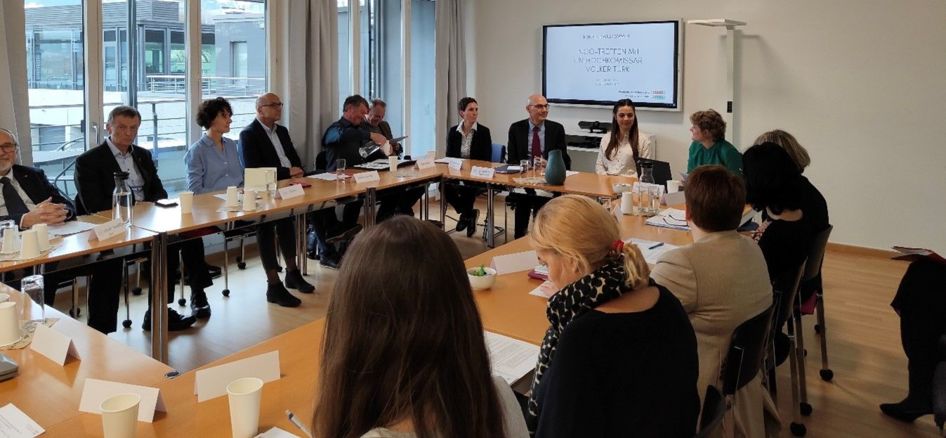International recommendations
The visits, reports and recommendations of international expert bodies of the UN and the Council of Europe are invaluable for Liechtenstein, as they provide independent, well-founded and comparable assessments of the implementation of human rights and thus enable targeted improvements. Through their recommendations, they promote the continuous development of human rights. The regular exchange with these expert bodies promotes and enriches cooperation within the country as well as the transfer of knowledge between governmental and non-governmental specialist bodies, creating synergies for the protection of human rights. Without this external impetus, progress in human rights protection would be much slower and less effective.
Current reports
In the reporting year, the report of the Council of Europe's Commission of Experts on Domestic Violence and Violence against Women (GREVIO) and the report of the Committee of Experts under the UN Convention against Torture (CAT) on Liechtenstein were published. These reports as well as all state reports ("country reports") to the respective bodies are available on the website of the Office for Foreign Affairs. The reports of the OCR and civil society ("shadow reports") are published on the website of the OCR.
On January 22, the UN High Commissioner for Human Rights visited the country and discussed the human rights situation with the authorities and civil society. From March 5-7, the Group of Experts under the Council of Europe Convention on Action against Trafficking in Human Beings (GRETA) reviewed the situation in Liechtenstein. On April 15-19, the evaluation team of the Council of Europe's Group of States against Corruption (GRECO) visited the country and on June 18, the Congress of Local and Regional Authorities of the Council of Europe, which examines respect for human rights and the rule of law at local and regional level, was in the country. With the exception of the visit by the High Commissioner for Human Rights, the results of these visits will be included in the respective audit reports for Liechtenstein. These are expected in 2025.

Figure: The exchange with international expert bodies strengthens the protection of human rights. In the picture: UN High Commissioner Volker Türk with civil society organizations in Liechtenstein. Photo: VMR
Implementation
In order to implement the reports and recommendations of international human rights bodies to Liechtenstein and to coordinate the collection of data and reporting to these bodies, the Government created an internal working group in 2019 under the leadership of the Office for Foreign Affairs. The working group is also tasked with exchanging information with institutions and organizations outside the administration that are central to the implementation of human rights in Liechtenstein, namely civil society organizations and private sector actors.
In 2024, the working group continued to pursue the project of a database for the uniform recording, review and prioritization of all human rights recommendations of international monitoring bodies. Following completion of the database, all recommendations received from 2023 onwards could be imported in the reporting year and work could begin on filling in the implementation measures planned and taken. Reservations made by Liechtenstein when ratifying human rights treaties are not recorded in the database, as it is not a legal database. The database is an internal administrative working tool and is not publicly accessible.
Take the lead in following up and prioritizing recommendations from international human rights bodies. Create a transparent implementation process that involves all stakeholders, including civil society.
